Marks Feed Store Closing in Lexington
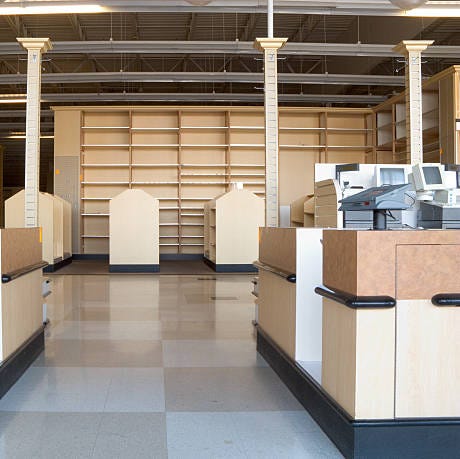
HKPNC Getty Images
It was a difficult year for everyone, and it's no secret that many retailers — and, sadly, their employees — took a huge financial hit in 2020. The ease of online shopping (and movement away from shopping malls) has affected brick-and-mortar stores for at least a decade, and the pandemic and shutdowns caused even more major stores to shutter.
While some companies downsized and closed only the worst-performing stores, others closed all stores forever. A few companies decided to reimagine themselves solely as online retailers, though not all have managed to achieve that goal just yet. Unfortunately, no matter what 2021 year brings, retail analysts say that the closure trend will likely continue as people stay home, malls continue to disappear and consumers stick to online shopping to fulfill their retail needs. In the meantime, here are some of the beloved retailers who have been forced to shut their doors forever.
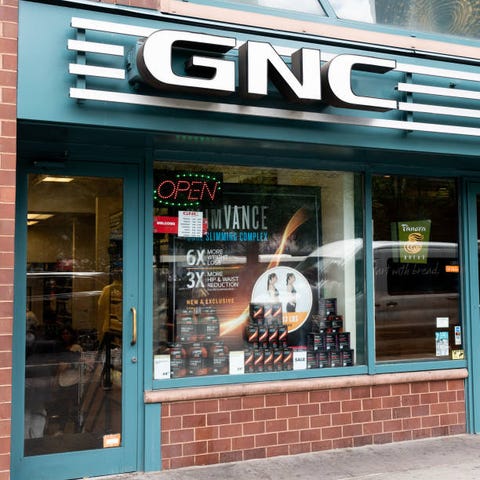
SOPA Images Getty Images
1 of 40
GNC
Founded in 1935 in Pittsburgh by David Shakarian, GNC grew through the decades as more Americans began to embrace the idea of good nutrition.
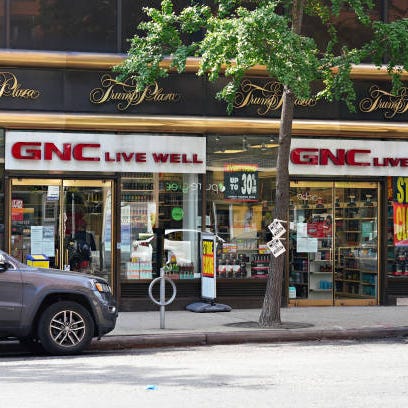
Cindy Ord Getty Images
2 of 40
GNC
After several years of financial pressure, the pandemic crushed its refinancing plans. In June 2020, GNC filed for Chapter 11 bankruptcy, planning to close at least 800 to 1200 stores.
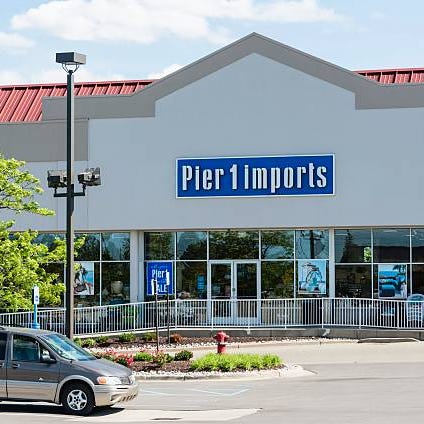
RiverNorthPhotography Getty Images
3 of 40
Pier 1 Imports
Pier 1 Imports began as a single store in San Mateo, California in 1962. They sold the requisite 60s home decor including bean bag chairs and incense. The company expanded rapidly across the country, celebrating its 50th anniversary in 2012. But by April 2019, pressured by online sales of home goods retailers, Pier 1 already was in financial trouble and said it would close up to 15 percent of its almost 1000 stores.
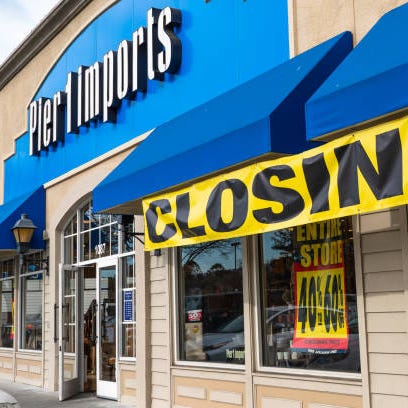
Sundry Photography Getty Images
4 of 40
Pier 1 Imports
In February 2020, the company filed for Chapter 11 bankruptcy. It continued to close its remaining stores, transitioning to an online presence only by year's end.
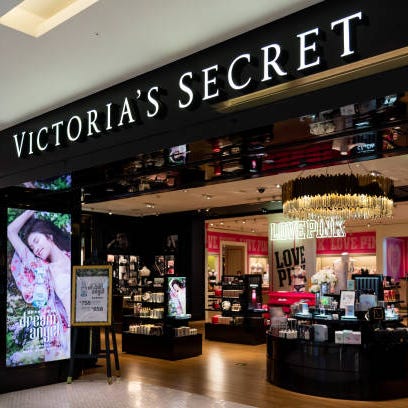
SOPA Images Getty Images
5 of 40
Victoria's Secret
Founded in 1977, the company became the largest lingerie retailer in the U.S. for decades. The iconic fashion shows and "Angels" attracted a generation of devoted shoppers.
RELATED: 11 Best Wireless Bras for Every Cup Size

NurPhoto Getty Images
6 of 40
Victoria's Secret
Perhaps more at home time meant fewer women wanted lacy underthings and push up bras? Sales declined by 37 percent in the first quarter of 2020. By May, the company announced it would close approximately 250 stores out of its more than 1000 in the U.S., and it said it expected to close more through 2021 and 2022.
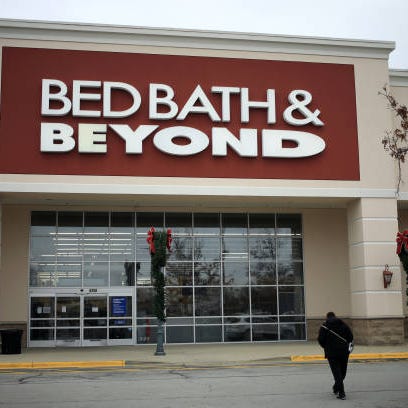
Bloomberg Getty Images
7 of 40
Bed Bath & Beyond
Owned by the same parent corporation as Victoria's Secret, Bed Bath & Beyond already had been battling the shift in consumer spending from brick-and-mortar stores to online shopping. Even their famous coupons couldn't help.
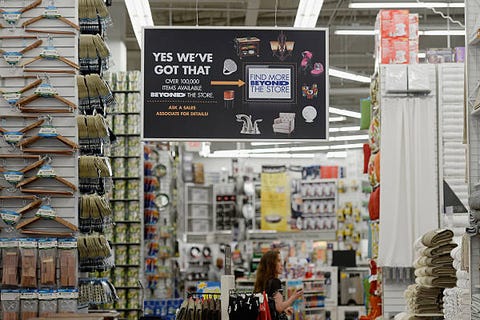
Kevork Djansezian Getty Images
8 of 40
Bed Bath & Beyond
The company's sales plummeted 49 percent in the first quarter, though online sales increase by 82 percent. Still, it wasn't enough to save the approximately 1,000 stores in the chain, and, in July 2020, the company announced that about 200 stores would close over the next two years.
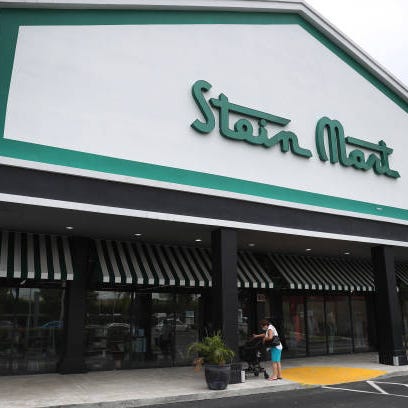
Joe Raedle Getty Images
9 of 40
Stein Mart
The company dates back to 1908, when the Stein family opened its first retail store in Greenville, Mississippi. The first Stein Mart opened in 1964, featuring mill closeouts and irregulars at big discounts. The company grew rapidly into the 1990s.
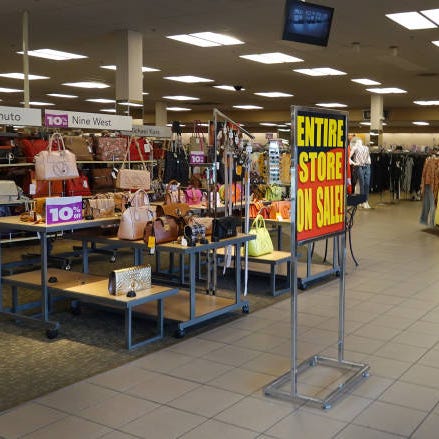
Joe Raedle Getty Images
10 of 40
Stein Mart
Stein Mart already was struggling against much larger off-price competitors such as TJ Maxx. By August 2020, they announced they would be closing all 279 stores across 30 states permanently.
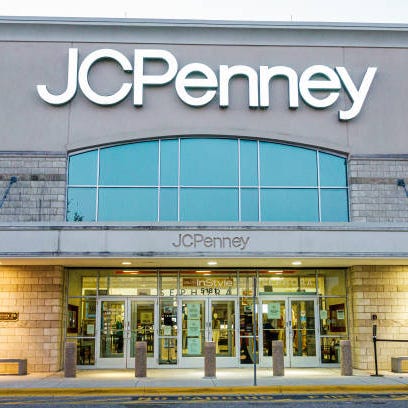
Jeff Greenberg Getty Images
11 of 40
JCPenney
Founded by James Cash Penney in 1902 in Kemmerer, Wyoming, this venerable old company has seen plenty of internal struggles with multiple CEOs in the past decade. Once a popular middle-class destination for families, especially in the 80s, the chain had lost money in eight of the last nine years, totaling $4.5 billion.
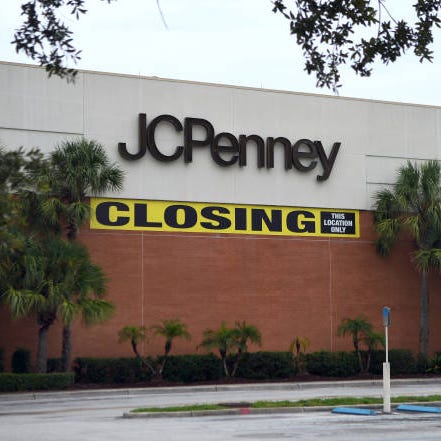
SOPA Images Getty Images
12 of 40
JCPenney
By May 2020, the chain announced it was filing Chapter 11 bankruptcy and closing about 200 of its 850 stores permanently. By year's end, the company had emerged from bankruptcy as a private company.
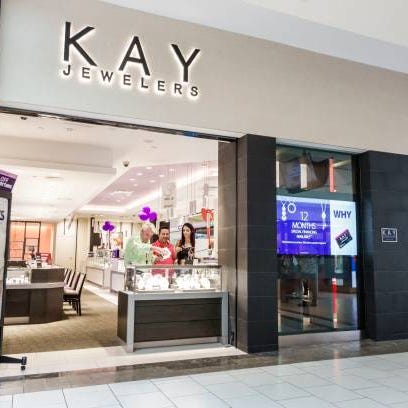
Jeff Greenberg Getty Images
13 of 40
Signet Jewelers (Kay, Zales, Jared)
The world's largest retailer of diamond jewelry, Signet Jewelry, is the parent company of Kay Jewelers, Zales and Jared The Galleria of Jewelry. The company operates more than 3,000 stores nationwide. But it had already reduced its number of stores in the last few years and continued to pull out of malls.
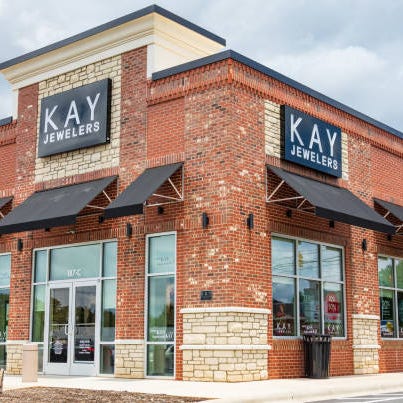
J. Michael Jones Getty Images
14 of 40
Signet Jewelers
Plans to continue closing underperforming stores were accelerated during the pandemic. About 150 stores across the company's various brands were not re-opened after the mid-March closures, and at least 150 more stores were slated to close by February 2021. But a little good news: Signet focused on building its online shopping, which helped them increase online sales during the holidays by 60 percent.
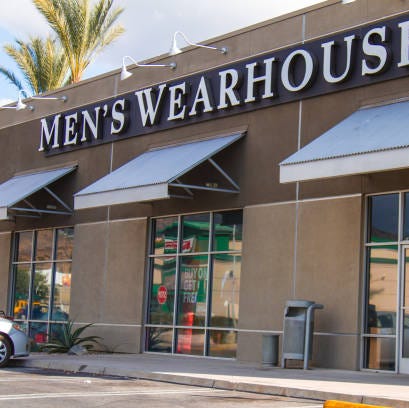
Jorge Villalba Getty Images
15 of 40
Men's Wearhouse
Men's Wearhouse, part of the Tailored Brands, Inc. group, has been in business for 45 years, helping guys pick suits for interviews or tuxes for formal events.
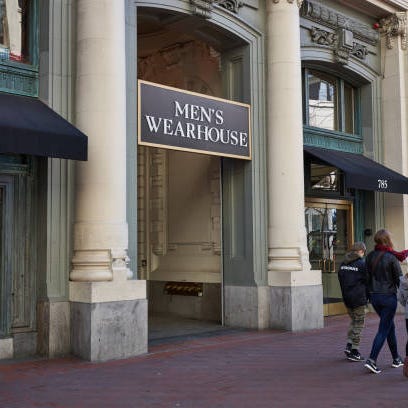
hapabapa Getty Images
16 of 40
Men's Wearhouse
You're not the only one who's spent plenty of time in your athleisure this year. The company already was facing a more relaxed dress code in most business environments. But the work-from-home pandemic put additional financial pressure on the parent company, which also owns men's retailer Jos. A. Banks, which was founded in 1905. By August, Tailored Brands files bankruptcy and announced plans to close up to 500 of its almost 1500 retail stores permanently.
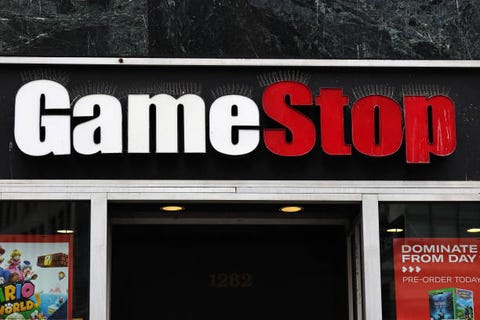
Michael M. Santiago Getty Images
17 of 40
GameStop
The video game retailer GameStop has a strong following, but sales have slumped as more gamers prefer digital downloads, not trips to the store. It alsos was affected because many shoppers held off on purchases because a new generation of gaming consoles was scheduled to be introduced in late 2020.
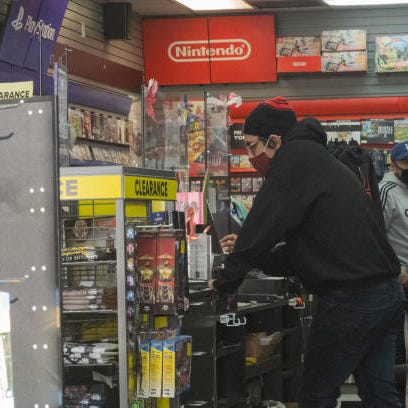
Bloomberg Getty Images
18 of 40
GameStop
The company has closed almost 800 stores since the beginning of 2019. But the pandemic pushed closure of another 100 stores. In good news, the company experienced strong sales over the holidays and its stock skyrocketed in January 2021. But it's too early to tell the outcome.
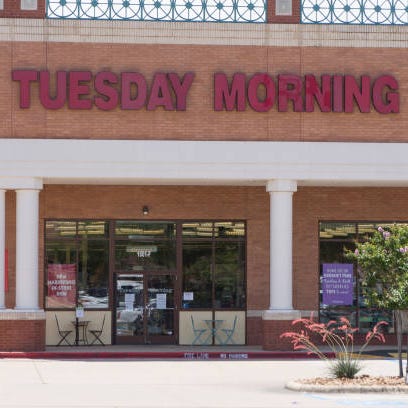
Xinhua News Agency Getty Images
19 of 40
Tuesday Morning
This popular off-price retailer was founded in 1974 by Lloyd Ross, who came up with the idea of selling left-over inventory from the big brands. He hosted a huge garage sale in a Dallas warehouse on a Tuesday morning, and the ideas was born. The store grew to 700 locations by 2020.
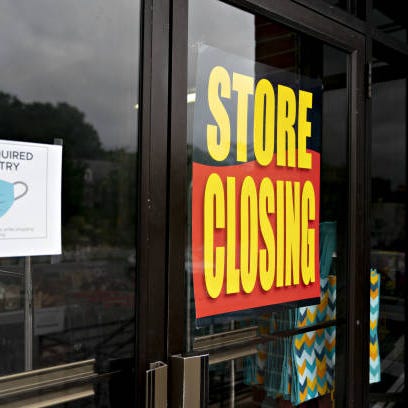
Bloomberg Getty Images
20 of 40
Tuesday Morning
With the shutdown, Tuesday Morning was hit particularly hard--mainly because they have no e-commerce business. The company filed for bankruptcy in May 2020, closing approximately 230 stores.

Smith Collection/Gado Getty Images
21 of 40
Gap
Founded in 1969, Gap and its other brand, Banana Republic, already had been shifting toward moving stores out of malls.
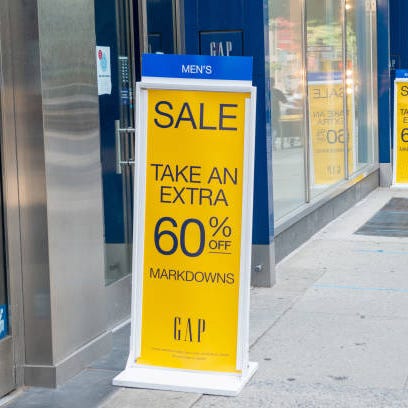
Alexi Rosenfeld Getty Images
22 of 40
Gap
In October 2020, Gap announced it would be closing about 220 stores by 2023 and decreasing its existing presence in malls. Its sister company, Banana Republic, said it would close around 130 stores. But it wasn't all bad news for the company: Its other brands, Old Navy and Athleta, announced plans for opening more stores.

Bloomberg Getty Images
23 of 40
Chico's
Founded in 1983 as a boutique selling folk art on Sanibel Island, Florida, the company specialized in bright, bold colors and styles. It grew to 600 stores across the country.

Bloomberg Getty Images
24 of 40
Chico's
Chico's already had started scaling back traditional retail operations in 2019, announcing the closure of 250 stores out of 1,400 during the next three years. In light of the financial strains during 2020, the company said any other underperforming stores would be re-evaluated as well.
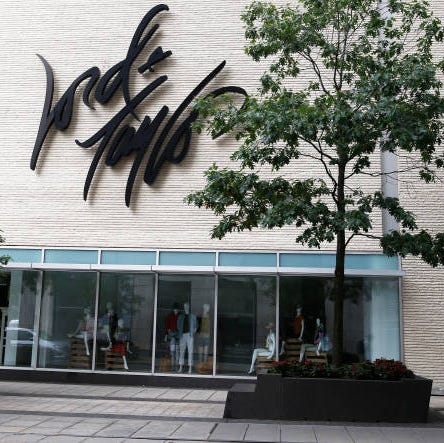
Boston Globe Getty Images
25 of 40
Lord & Taylor
Lord & Taylor, founded in the 1820s in New York City, has long been associated with style and quality. The iconic chain became a favorite among middle-class women in the 1950s, who loved their affordable, fashionable dresses.
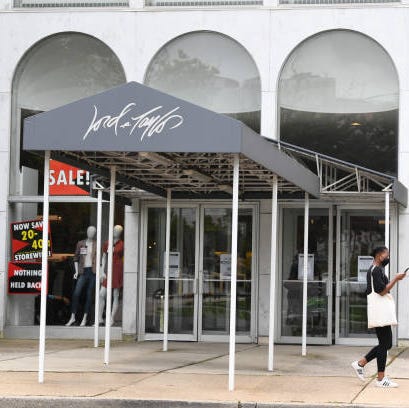
The Washington Post Getty Images
26 of 40
Lord & Taylor
The 21st century wasn't kind to the company, and it suffered several changes in ownership as well as a partnership with WalMart, which many analysts said was, in a word, nuts. The company filed for bankruptcy in 2020 and planned to reopen some of its stores, then said it would close the remaining 38 stores. Supposedly, they will announce an online-only shopping experience soon, but the website wasn't yet online in early 2021.
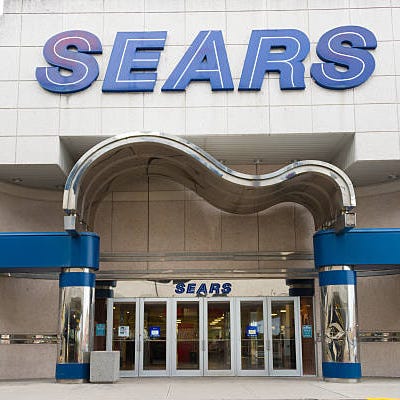
Roberto Machado Noa Getty Images
27 of 40
Sears
Once an icon of American retailing, Sears had a long, slow decline over the past decade. During its heyday, the company had 3,900 stores.
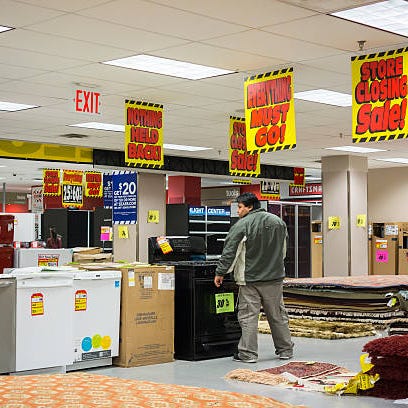
Richard Levine Getty Images
28 of 40
Sears
The company filed bankruptcy in 2018, closed hundreds of stores and tried to re-invent itself. But 2020 brought even more woes as the stores were forced to close during the shutdown. Some reopened but further closures of an undisclosed number were announced.
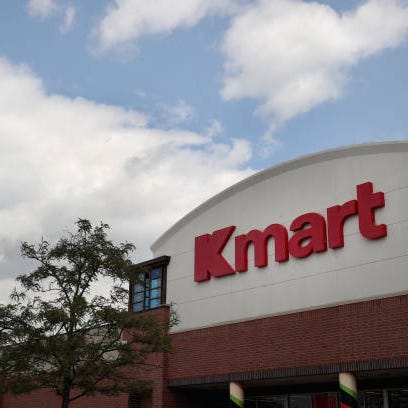
Scott Olson Getty Images
29 of 40
Kmart
Kmart was founded in 1897 and originally called Kresge's, changing its name to Kmart in 1977. There were more than 2,000 stores nationwide at one point. But troubles began as far back as the 90s when 200 stores were closed in 1995.
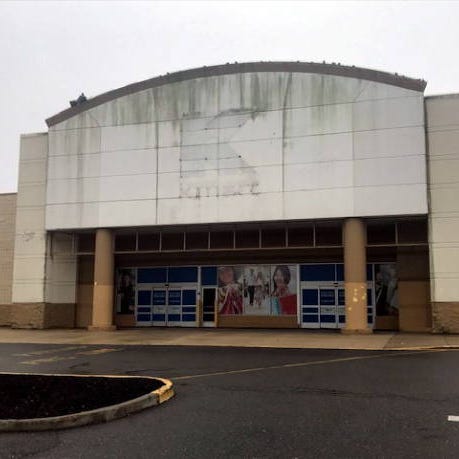
Newsday LLC Getty Images
30 of 40
Kmart
Declining sales pushed the company into bankruptcy in 2002, the largest retailer ever to do so. Kmart acquired Sears in 2005, which didn't help things. Another company acquired both Sears and Kmart in 2019, but it also wasn't able to turn things around. New closures were announced to begin in December 2020. Only about 30 Kmarts remain.
Source: https://www.goodhousekeeping.com/life/g35338895/stores-that-closed-for-good-in-2020/
0 Response to "Marks Feed Store Closing in Lexington"
Post a Comment